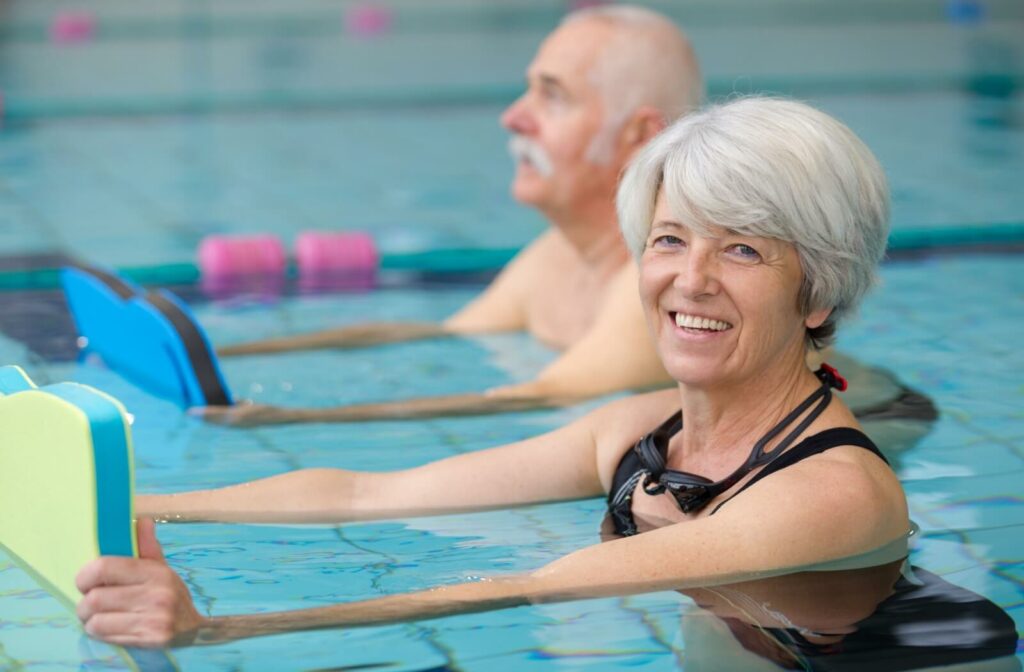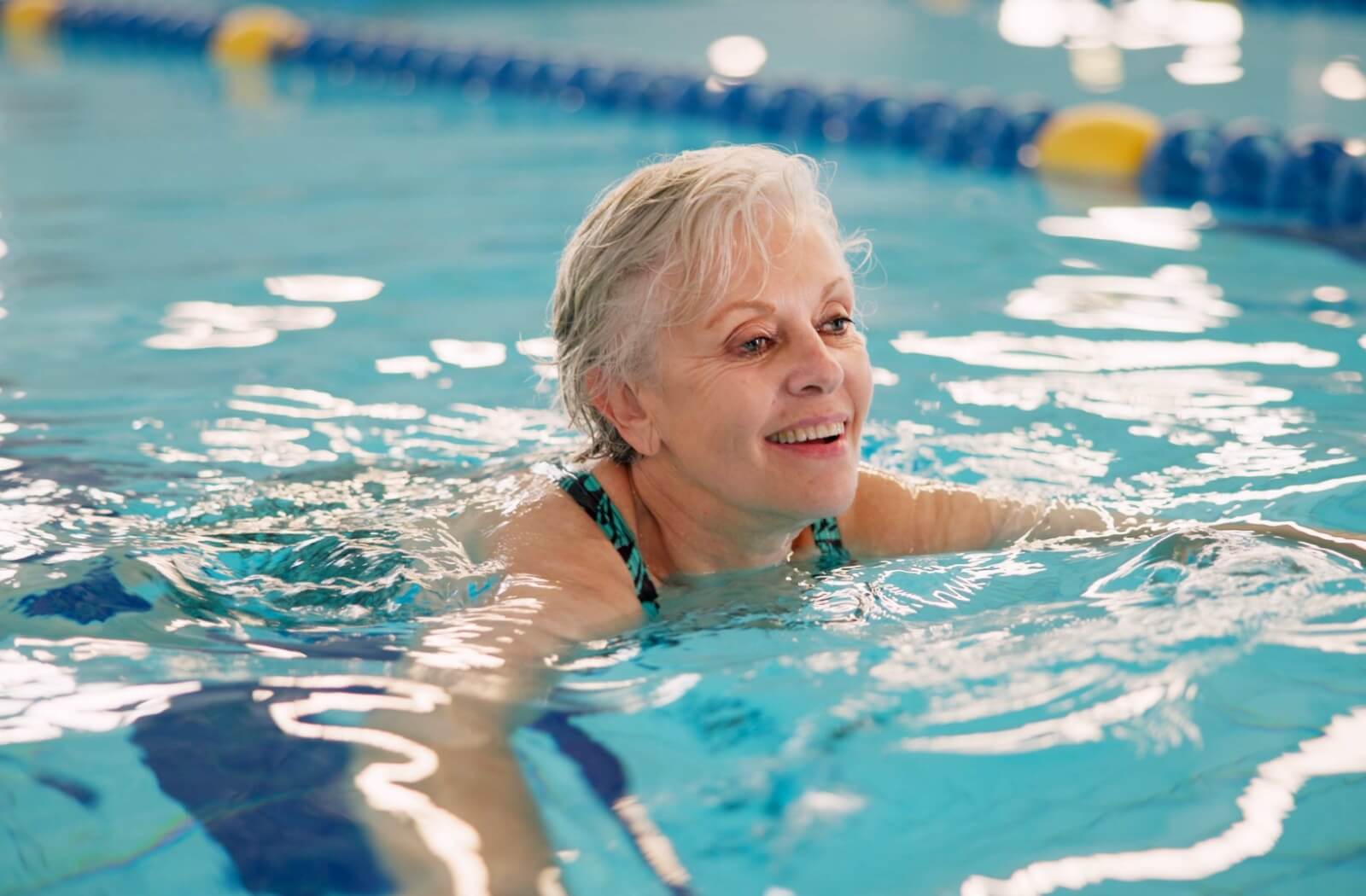When it comes to staying active, many older adults want something that feels good, not forced. That’s where aquatic therapy comes in. With its gentle movement, supportive environment, and full-body benefits, this water-based activity is extremely helpful for older adults looking to work towards a healthier life.
Aquatic therapy is a form of low-impact exercise performed in water. It helps with movement, mobility, and motivation. This means it’s especially ideal for building strength without putting too much strain on aging joints.
The Basics of Aquatic Therapy
Aquatic therapy is a form of exercise and rehabilitation that takes place in a pool. It’s designed to use water’s buoyancy to reduce stress on joints while providing resistance to build strength and flexibility. This makes it an ideal option for those who may find traditional exercise too strenuous.
Water helps lighten the load on joints, which can make exercises easier and more enjoyable. That means someone with arthritis or stiffness can often move more freely in the pool than on land. At the same time, water provides a natural resistance. That makes every stretch or step a chance to build muscle strength, flexibility, and overall mobility.
Even better—these exercises aren’t one-size-fits-all. They can be tailored to suit your loved one’s abilities, comfort level, and long-term goals. And here at Juniper Village at Bucks County, we’re proud to offer pool-based exercise classes and aquatic therapy sessions as part of our holistic wellness approach.
Why Is Aquatic Therapy So Helpful for Seniors?
Aquatic therapy offers multiple benefits for older adults looking to maintain or improve their health. From boosting the body to calming the mind, water-based movement supports a more active and engaging lifestyle.
Physical Benefits of Water-Based Exercise
Gentle on the joints and easy to enjoy, water exercises offer many physical benefits. It helps:
- Improve flexibility, mobility, and range of motion through buoyancy.
- Build muscle strength and enhance balance in a safe environment.
- Support cardiovascular health by improving circulation and heart function.
Whether it’s stretching, walking, or gentle aerobics, water aerobics gives older adults a chance to move confidently in their everyday lives.
Mental Benefits of Water-Based Exercise
Getting in the water can boost more than just movement—it can boost mood, too. Aquatic therapy offers all kinds of mental benefits. It helps:
- Reduce stress and anxiety through the calming properties of water.
- Encourage relaxation with rhythmic, soothing movements.
- Boost confidence and mood by achieving small, manageable goals.
With consistent movement and encouragement, mental health can thrive in the pool.
Cognitive Benefits of Water-Based Exercise
The brain benefits from activity just as much as the body. Exercise and cognitive health are closely linked, and aquatic therapy helps:
- Enhance memory and focus through mentally engaging exercises
- Promote problem-solving and attention to detail with structured activities
- Maintain long-term cognitive health by keeping the brain active
Simple routines in the pool often require remembering sequences, shifting direction, or focusing on balance. All of these are excellent for the mind.
Medical Benefits of Water-Based Exercise
For older adults managing chronic pain or health conditions, water can be a welcome relief. Water therapy can help:
- Ease chronic pain by reducing pressure on joints and muscles.
- Soothe stiff muscles and inflammation with warm water therapy.
- Improve circulation and aid recovery from injuries or physical exertion.
Warm water and movement can be a powerful combination for feeling better, day by day.
Social Benefits of Water-Based Exercise
Movement is more fun when it’s shared. That’s why most aquatic therapy classes are typically taught in a group setting. This way, you can enjoy stronger social bonds while you’re exercising. Water therapy:
- Provides opportunities for social interaction in group settings.
- Reduces feelings of isolation and loneliness by fostering a sense of belonging.
- Builds a support network that encourages consistent participation.
Swimming side by side, cheering each other on, or simply laughing between stretches—it all helps create a sense of community.

Tips for Encouraging Seniors to Stay Active
Keeping your loved one moving doesn’t have to be a huge lift. Little things can make a big difference. To encourage an older loved one to exercise more often, try to:
- Suggest starting with enjoyable activities like walking or gardening.
- Recommend setting realistic fitness goals tailored to their abilities.
- Introduce group classes or low-impact exercises like aquatic therapy.
- Make sure they have the right equipment, such as supportive footwear.
- Celebrate small milestones to keep them motivated and engaged.
- Highlight the importance of creating a routine that feels fun and achievable.
Whether they’re dipping a toe in for the first time or ready for a regular class, a little encouragement goes a long way.
Supporting Seniors in Their Wellness Journey
Staying active doesn’t have to be difficult. With options like Aquatic therapy and other low-impact exercises, older adults can enjoy a healthier, more fulfilling lifestyle. These exercises offer all kinds of benefits to older adults—that’s why we’re so happy to offer them here at Juniper.
In our communities, we go above and beyond to help older adults every day. Whether your loved one is looking to strengthen their body, boost their mind, or just have some fun in the pool, we’re ready to offer them a home. Schedule a visit with us today to learn more!







